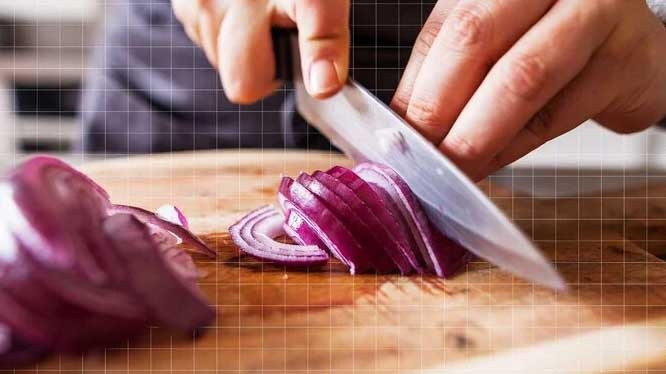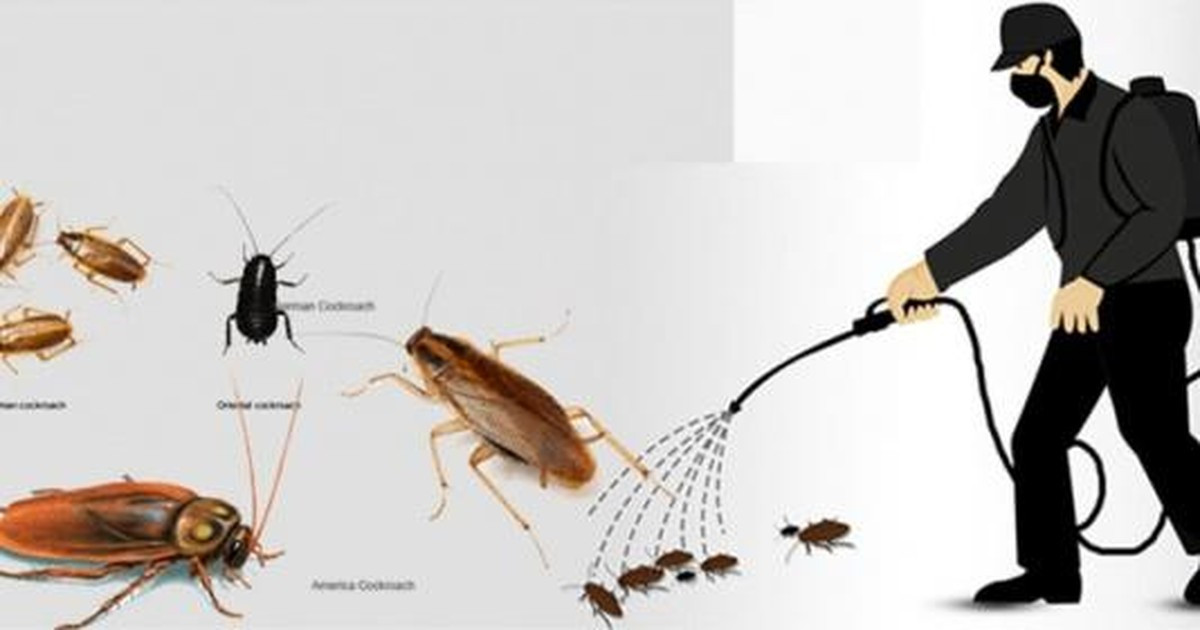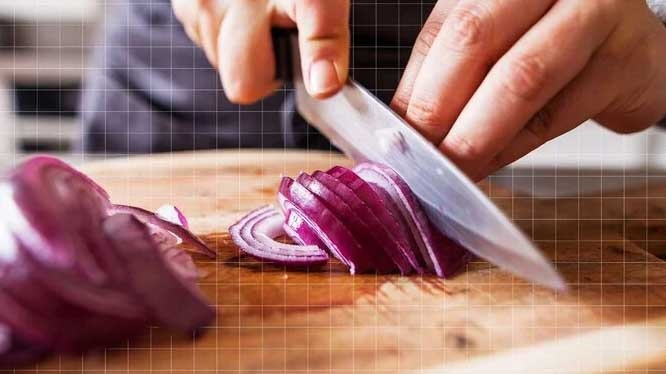
Food scientist ThS Brian Chau from Oregon State University in the US explains to Business Insider: “When you cut into an onion, an enzyme called alliinase is released, along with a group of compounds called cysteine sulfoxides. Through a series of chemical reactions, a volatile gas called propanethial S-oxide is formed and released into the air.”
Not all onions will make you tear up equally. Sweet and green onions contain less sulfur than yellow, white, and red onions, so they tend to cause a milder reaction. However, many other types of onions can leave you in tears.
To avoid this uncomfortable situation, try these tips for chopping onions without crying:
Use a sharp knife
Chop onions with a sharp, stainless steel knife that has been dipped in water. This will significantly reduce eye irritation.
Renowned chef Julie Andrews, author of several books on nutritional cooking, says: “A sharp knife will cause less damage to the onion’s flesh, reducing the amount of gas released.”
Brian Chau adds: “A dull knife will only make chopping and dicing more difficult and prolong your exposure to the volatile gas. Investing in a knife sharpener or buying a new knife may not entirely prevent tears, but it will make the experience more pleasant.”
Chill the onions before chopping
To use this tip, you need to plan ahead and place the onions in the fridge before you start cooking.
Andrews says: “This is probably the best method,” and Brian Chau agrees: “The chemical reactions will slow down at lower temperatures.” Place the onions in the fridge for 30 to 45 minutes, and take them out when you’re ready to chop. Work quickly, as the onions will start to make your eyes water once they warm up.
Keeping onions in the fridge will cause them to spoil faster, so only chill them when you’re about to use them.
Wear glasses
If you consistently have trouble with chopping onions, wear glasses to create a barrier between your eyes and the gases. “Specialized onion-chopping goggles or swimming, lab, or ski goggles can be used,” suggests Brian Chau.
Cut onions under water
Cutting onions under water or running the tap while chopping is another effective tip. The water will dissolve the sulfur compounds before they reach your eyes.
Leave the root intact
The tear-inducing compounds are most concentrated at the onion’s root and base. So, when chopping, cut off the top and tail first, then slice the rest, leaving the root end for last to minimize eye irritation.
Turn on a fan
The irritating gas rises vertically as you chop, causing eye irritation. Point a fan in the direction of your gaze to blow away the gas and any onion droplets.
Use vinegar
Mix a little vinegar with water and wet your cutting board with this solution before chopping onions. Vinegar can stop the sulfur reaction, making chopping easier. But be careful not to use too much, as it can alter the taste of the onion.
Light a candle
Light a candle near your cutting board; the heat from the flame can burn off the gases released by the onion.
Chew bread
When you breathe through your mouth, your nose and eyes are less stimulated, reducing tears. So, chew on a piece of bread (or any food) or gum while chopping onions.
In addition to these tips, Brian Chau recommends investing in specialized kitchen equipment if possible: “Purchase a good food processor with a chopping or slicing blade. This reduces the risk of tears because the exposure time is lower, and the onion is contained in a closed environment.”
A low-cost alternative is a vegetable chopper. You can use it for most vegetables and save a lot of preparation time.
Source: VOV

Super easy tips to keep your flowers fresh for longer

Tips to keep your kitchen tiles sparkling clean

Useful tips to keep pests out of your home
Exploring Natural Foods for Allergy Relief
Dealing with allergies can be difficult and uncomfortable, especially for young children. Allergens such as pollen, cosmetics, and insects can cause serious issues for those affected. However, knowledge of the symptoms and taking the necessary precautions can help alleviate the troublesome effects of allergies, like itching, sneezing, and irritation.






































